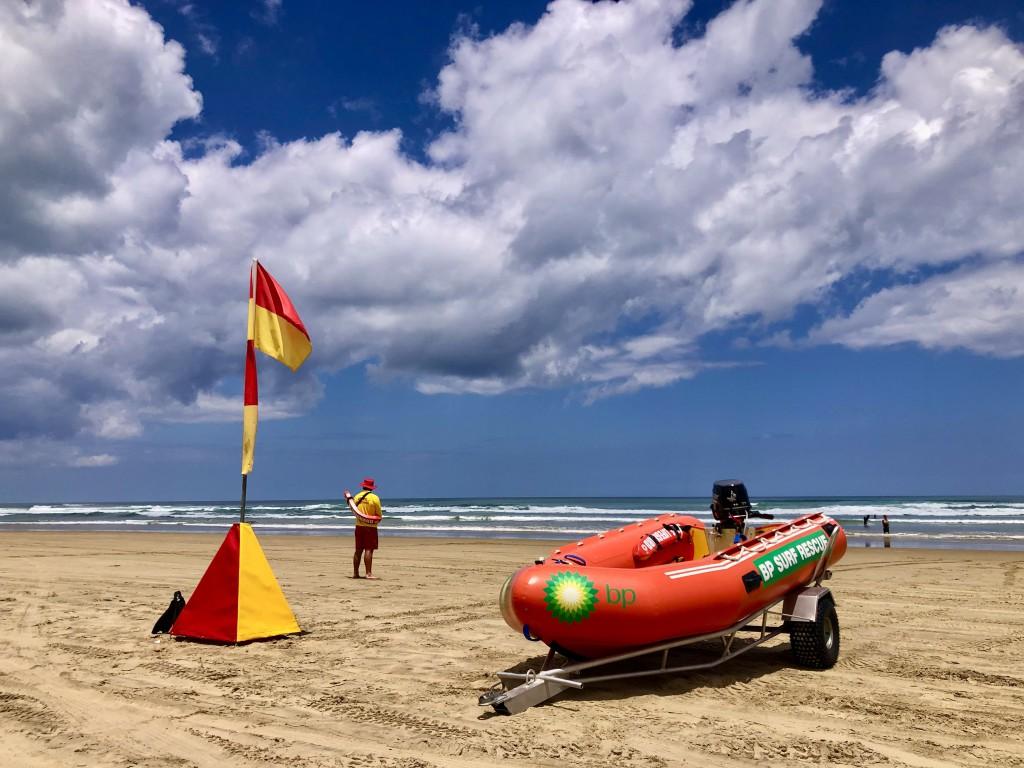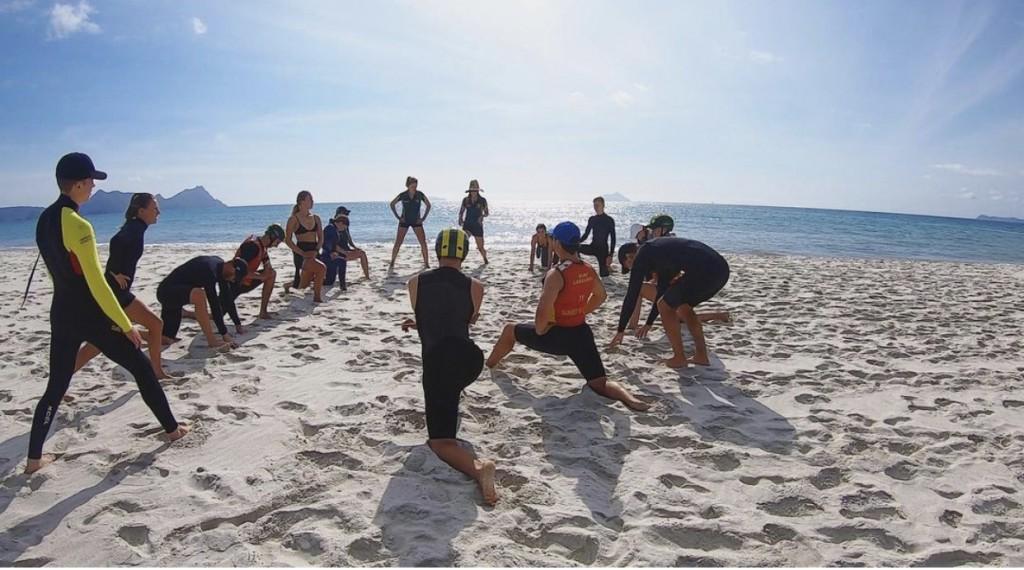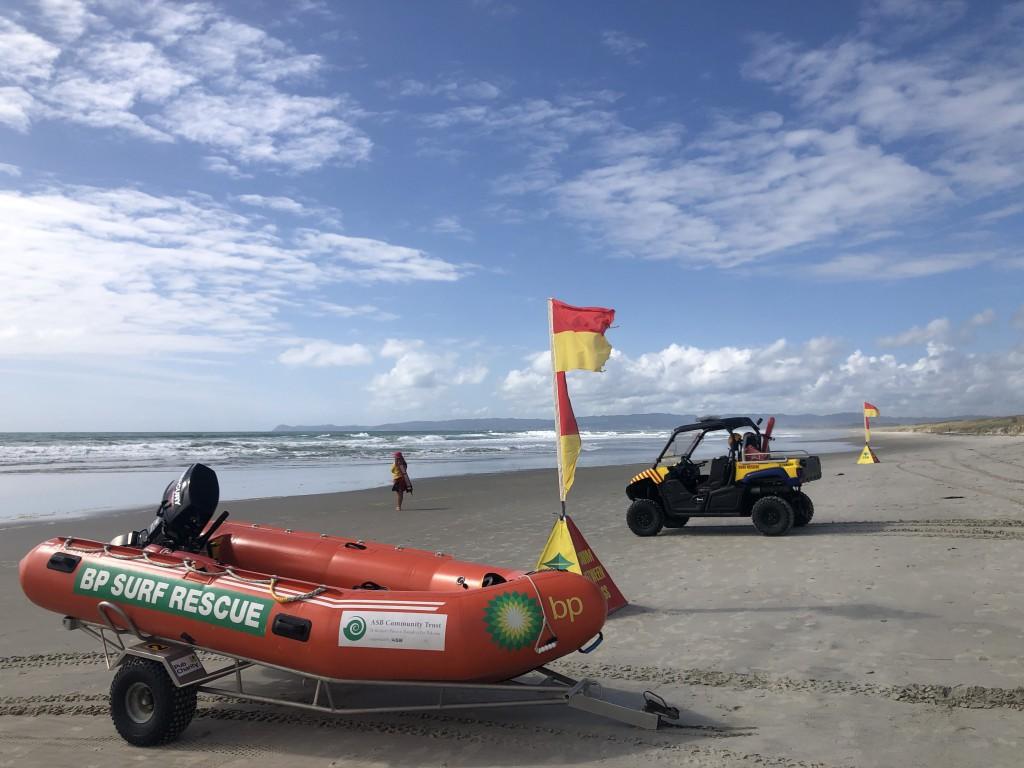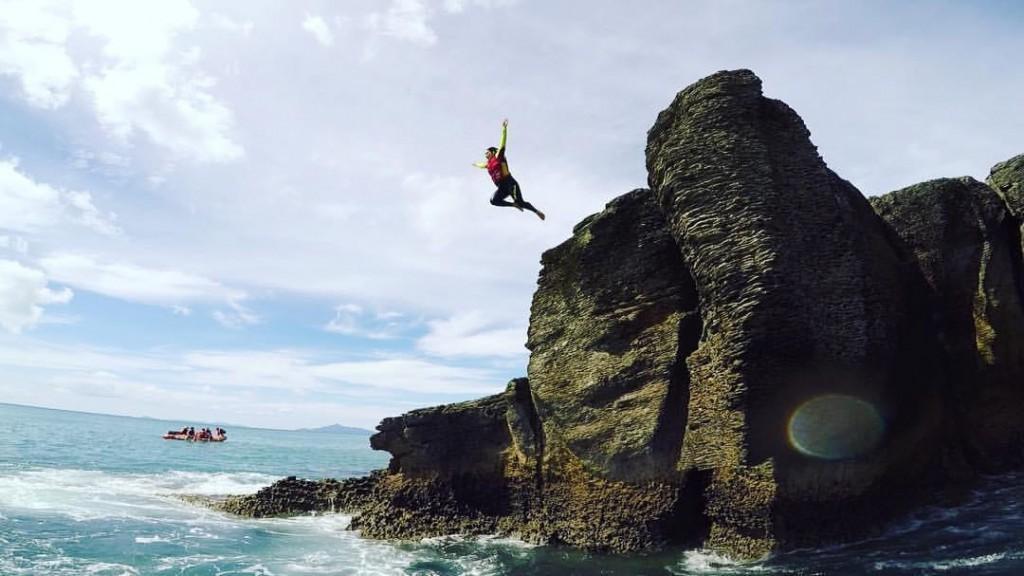SLSNZ is a charity and the national association of New Zealand’s Surf Lifeguards that has over 5,000 volunteers patrolling beaches across the country
Growing up and saving lives – 60% of NZ’s surf lifesaving volunteers are under 20
 On patrol at Baylys Beach
On patrol at Baylys Beach
Lifesaving crews practice deploying their IRBs though the waves
 Melissa is 17 and in her first season as a volunteer lifeguard at Ruakaka
Melissa is 17 and in her first season as a volunteer lifeguard at Ruakaka
If you’re from New Zealand, then you learn from a young age that the ocean will play an important part in your life. You could say that NZ is a swimming nation, with 90% of Kiwis living less than 25 minutes from the coast, however the flip side of all that water and enthusiasm is the reality that the glorious surf makes for a deadly playground.

Samantha Harding
Meet Samantha; mother, registered nurse, photographer, rockstar entrepreneur, Inflatable Rescue Boat (IRB) champ and lifesaver. She’s typical of thousands of Kiwis who have volunteered their weekends or spare time to patrol beaches to keep swimmers and visitors safe.

Samantha (centre) and her teammates
Samantha’s journey into the sport and community of surf lifesaving started in her early teens. While hanging out at her local beach with friends she met others who were involved with Sunset Beach Lifeguard Service and progressed though induction courses with experienced mentors to qualify as a lifeguard. Her high school also had within its PE curriculum units on water safety, such as identifying hazards, assessing surf conditions, rip currents and other key aspects of staying safe in the water and included practical swim sessions in surf conditions.
Sunset Beach Lifeguards in training
Surf Lifeguards like Samantha and her crew are often the difference between life and death and every SLSNZ member quickly discovers that saving lives is a powerful motivator for committing their time and personal safety to a higher cause.

Legends.

Can you think of any other sport that prepares its participants to save lives?
While surf lifesavers may love the challenge of gaining skills and fitness through competing in various disciplines with their clubs, these athletes contribute to a higher cause with their genuine desire to serve their communities and work in challenging and often dangerous environments to help save lives.

Make no mistake that these young people require significant fortitude to put themselves in jeopardy in service of strangers. A day at the beach with all its promises of carefree joy can turn in an instant to tragic circumstances, and young surf lifeguards find themselves managing a death scene. Of all the dangers that surf beaches pose, the biggest threat comes from complacency of swimmers; especially those new to a surf environment that overestimate their swimming ability and completely underestimate the power and relentless force of waves.

What’s the appeal? Why do young people join?
Volunteering for lifeguard duties at local surf beaches appeals on many levels to teenagers with a passion for the ocean. For many, it offers their first independent route to contribute to their communities and make a difference in other’s lives. The nature of the sport and the disciplines, techniques and fitness involved develop alongside gaining valuable skills such as leadership, teamwork and problem-solving that can be applied to other areas of their lives. The nature of the sport allows them to be physically active, spend time outdoors and be part of a supportive community that has a collective passion for water safety, rescue and education.


If you’re new to a surf beach, here’s how you can help the volunteers help keep you safe.
The flags that you see on the beach are never there for decoration – they’re the specific control areas that surf lifesavers on the beach, and in the viewing towers, have a detailed watch on. A constant stream of information via radios on the numbers in the water and surf conditions are relayed between volunteers as they attempt to preempt and prevent dangerous situations occurring. When you swim outside the patrol zone then you immediately stress their capacity for control and create pressures on their systems. You might even be assumed to be in difficulty if you’re away from the control zone and a rescue boat and crew might even be deployed, which unnecessarily occupies valuable resources.

The best option for anyone arriving at a surf beach that has patrols is to speak to the lifeguards. These volunteers always welcome the public getting updates on water and weather conditions and as they’re trained on what dangers exist, passing on their knowledge keeps everybody safer in the water.

For more information on the charity behind New Zealand Surf Lifesaving visit https://www.surflifesaving.org.nz/
@battleface thanks Sunset Beach Surf Lifeguard Service for their cooperation and images.










